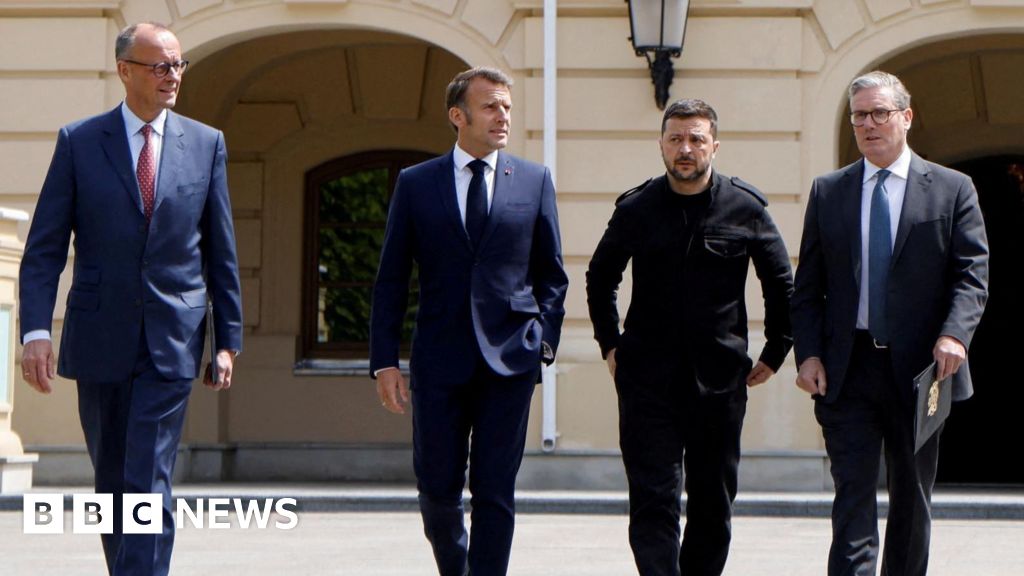Ukraine War Peace Plan Dominates G20 Talks: Allies Seek to Strengthen US Proposal Amid Kyiv's Concerns
 Ukraine
International Diplomacy
Ukraine
International Diplomacy

G20 leaders will discuss a controversial US peace plan for Ukraine. Kyiv expresses alarm over terms seen favorable to Moscow, including territorial concessions
G20 Summit Addresses Contentious US Peace Plan for Ukraine Amid Kyiv's Alarm
Global leaders are set to converge at the G20 summit in South Africa, with a primary focus on strengthening a contentious US-backed peace proposal aimed at ending the protracted war in Ukraine. The discussions come at a critical juncture, following Ukrainian President Volodymyr Zelensky's stark warning that his nation faces "one of the most difficult moments in our history" due to intense pressure to accept terms widely perceived as advantageous to Moscow.
Allies Seek to Modify a Divisive Proposal
UK Prime Minister Sir Keir Starmer confirmed that discussions at the G20 will center on the current US proposal. Following phone talks with President Zelensky and the leaders of France and Germany, Sir Keir emphasized the unwavering commitment of Ukraine's "friends and partners" to achieving a "lasting peace." He stated that gathered leaders would "look at how we can strengthen this plan for the next phase of negotiations" in support of the US push for peace, acknowledging the need for a just and lasting resolution.
The leaked details of the US peace plan have ignited considerable debate, suggesting terms that Kyiv had previously rejected outright. These include ceding currently controlled eastern territories, significantly reducing Ukraine's military size, and pledging not to join NATO—a long-standing Kremlin demand. Such concessions have sparked "nervousness in European capitals," with EU foreign policy chief Kaja Kallas branding the potential adoption of these terms a "very dangerous moment." Kallas underscored that while an end to the war is desired, the terms of its conclusion are paramount, stressing Russia's lack of legal right to any Ukrainian concessions.
Key Elements of the Leaked Plan
The comprehensive draft outlines several critical provisions:
- Territorial Cessions: Ukrainian troops would withdraw from parts of the eastern Donetsk region they currently control. Russia would gain de facto control over Donetsk, Luhansk, and the Crimea peninsula (annexed in 2014).
- Frozen Front Lines: The borders of Ukraine's southern Kherson and Zaporizhzhia regions would be frozen along current battle lines, areas partially occupied by Russia.
- Security Guarantees: Kyiv would receive "reliable security guarantees," though specific details remain undisclosed.
- Non-Aggression Pledges: Russia is "expected" not to invade its neighbors, and NATO is expected not to expand further.
- Russia's Reintegration: The plan astonishingly suggests Russia's reintegration into the global economy through sanction lifting and an invitation to rejoin the G7, effectively reverting it to the G8.
Conflicting Views and Behind-the-Scenes Maneuvers
While President Trump, who is not attending the G20, reportedly set a deadline for Ukraine to agree to the plan, stating Zelensky "is going to have to approve" it, the White House has countered claims that Ukraine was sidelined during its drafting. An unnamed US official told CBS News that the plan was developed after discussions with Ukraine’s top security official, Rustem Umerov, who reportedly agreed to most of it after making modifications before presenting it to Zelensky.
Russian President Vladimir Putin confirmed receipt of the US proposal, calling it a potential "basis" for settlement, yet noting detailed discussions haven't occurred. He reiterated Russia's willingness to "show flexibility" but also its readiness to continue fighting until the "unconditional achievement" of its "special military operation" aims.
Meanwhile, a post on X by Russian counterpart Kirill Dmitriev warned against "warmongers' propaganda," asserting that Trump's plan is designed to "save Ukraine from losing even more land and lives."
Ukraine's Steadfast Position
Amidst these diplomatic maneuvers, President Zelensky delivered a resolute 10-minute address in Kyiv, urging unity against attempts to "weaken us, to divide us." He stressed the paramount importance of Ukraine's national interest and declared that while "not making loud statements," Ukraine would "calmly work with America and all the partners... offering alternatives" to the proposed plan. Ukraine's reliance on US weaponry and intelligence underscores the delicate balance of its strategic position.
The G20 summit therefore becomes a crucial arena for navigating this complex diplomatic landscape, as allies grapple with a peace plan that seeks to end a brutal war but risks solidifying territorial gains made by the aggressor.